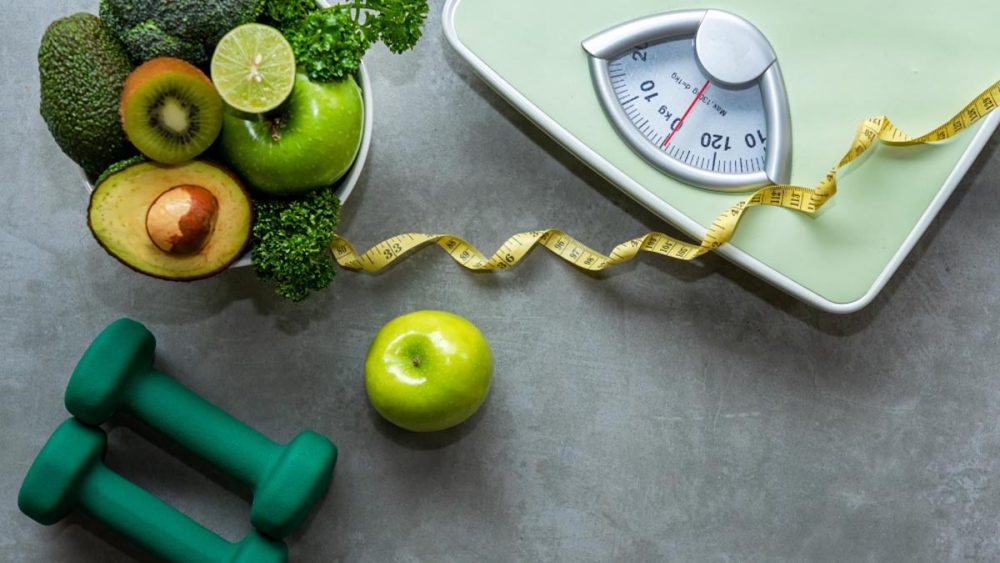Fastest Way to Lose Weight
Fastest Way to Lose Weight – Losing weight can be a challenge, but it doesn’t have to be an impossible task. With the right information and approach, anyone can achieve their weight loss goals healthily and sustainably. In this blog post, we’ll explore what healthy weight loss entails, why it’s important, and how you can get started on your weight loss journey. Whether you’re looking to lose a few pounds or make a significant change, the information in this post will provide you with the tools and knowledge you need to reach your goals. So, let’s get started!
Below we share the Fastest Way to Lose Weight

Understanding Your Body and Metabolism
Metabolism is a term that is often used when discussing weight loss. Simply put, your metabolism is the process by which your body converts food into energy. The speed at which your body burns calories is known as your metabolic rate. Your metabolism is influenced by several factors, including your age, sex, weight, and muscle mass.
One common myth is that some people are “born with a slow metabolism,” making it difficult for them to lose weight. However, while genetics do play a role in determining your metabolic rate, it’s not the only factor. Your diet, physical activity, and lifestyle choices can all impact your metabolism, making it possible to boost your metabolic rate and burn more calories.
To better understand your metabolism and how it affects your weight, it’s important to know the difference between BMR (Basal Metabolic Rate) and TDEE (Total Daily Energy Expenditure). BMR is the number of calories your body needs just to perform basic functions such as breathing, circulation, and cell production. TDEE, on the other hand, is the total number of calories you burn in a day, taking into account your BMR and the calories you burn through physical activity.
Simple Diet Changes for Quick Results
Making simple changes to your diet can help you achieve your weight loss goals more quickly and easily. Here are some simple diet changes you can make to see quick results:
- Drink more water: Drinking water before meals can help you feel fuller and eat less. Aim to drink at least 8 cups of water a day.
- Cut out sugar-sweetened drinks: Sugary drinks like soda, juice, and sports drinks can contain a lot of empty calories that can add up quickly. Opt for water, unsweetened tea, or sparkling water instead.
- Increase your protein intake: Protein can help you feel fuller for longer, which can lead to decreased calorie intake and weight loss. Try to include a source of protein in each meal and snack.
- Cut back on processed foods: Processed foods are often high in calories, salt, and unhealthy fats. Try to choose whole foods like fruits, vegetables, and lean protein instead.
- Plan your meals: Planning your meals can help you make healthier food choices and avoid impulse eating.
- Incorporate healthy fats: Healthy fats like olive oil, avocado, and nuts can help you feel full and satisfied.
- Get creative with spices and herbs: Spices and herbs can add flavor to your food without adding calories. Try new seasonings and herbs to keep your meals exciting and flavorful.
- Avoid eating late at night: Eating late at night can disrupt your metabolism and make it harder to lose weight. Try to finish your last meal at least a few hours before bedtime.
Remember, the key to successful weight loss is to make sustainable changes to your diet. Incorporating these simple changes can help you see quick results, but be sure to make a plan that works for your lifestyle and health needs.
Power of Portion Control
Portion control is the practice of paying attention to how much food you’re eating and making sure it’s in line with your weight loss goals. It’s a simple, yet effective way to lose weight because it allows you to eat the foods you love while still maintaining control over your calorie intake. Here are some tips for practicing portion control:
- Use a food scale: A food scale can help you accurately measure portion sizes, especially for foods that are difficult to estimate, such as cooked rice or pasta.
- Use smaller plates and bowls: Smaller dishes can make your portions look larger and help you feel more satisfied.
- Practice mindful eating: Pay attention to your hunger and fullness cues and stop eating when you’re satisfied, not stuffed.
- Plan your meals: Planning your meals can help you make healthier food choices and avoid impulse eating.
- Keep healthy foods on hand: Stock your pantry and refrigerator with healthy foods so you’re always prepared for meals and snacks.
Remember, portion control is not about deprivation or restriction, but about finding a healthy balance between what you eat and how much you eat. Incorporating portion control into your diet can help you reach your weight loss goals more quickly and easily.
Benefits of Regular Exercise
Regular exercise offers a wide range of physical, mental, and emotional benefits. Here are some of the most important ones:
- Improved Physical Health: Exercise helps improve cardiovascular health, strengthens muscles and bones, increases flexibility and balance, and helps control weight.
- Mental Health Benefits: Exercise has been shown to reduce symptoms of anxiety and depression, improve mood, and boost self-esteem and confidence.
- Increased Energy Levels: Regular exercise can help increase energy levels and reduce fatigue.
- Better Sleep: Exercise can help regulate sleep patterns and improve the quality of sleep.
- Reduced Risk of Chronic Diseases: Regular exercise can help reduce the risk of developing chronic diseases such as heart disease, stroke, type 2 diabetes, and some forms of cancer.
- Improved Brain Function: Exercise has been shown to improve brain function, including memory, concentration, and decision-making abilities.
Regular exercise can have a significant positive impact on both physical and mental health. It’s important to consult with a doctor before starting a new exercise program to determine the best plan for your individual needs and abilities.
Incorporating High-Intensity Interval Training (HIIT) into Your Routine
High-Intensity Interval Training (HIIT) is a form of exercise that alternates between high-intensity bursts of activity and periods of recovery. HIIT can be performed using a variety of exercises, such as running, cycling, jumping rope, or using resistance equipment. The high-intensity intervals typically last between 30 seconds and several minutes, followed by a recovery period of equal or longer duration.
The benefits of HIIT include:
- Increased Cardiovascular Endurance: HIIT can help improve cardiovascular endurance by challenging the heart and lungs to work harder.
- Improved Insulin Sensitivity: HIIT has been shown to improve insulin sensitivity, which can help regulate blood sugar levels and reduce the risk of type 2 diabetes.
- Increased Metabolic Rate: HIIT can increase the body’s metabolic rate, meaning you continue to burn calories even after the workout is over.
- Better Fat Loss: HIIT is more effective for fat loss than traditional steady-state cardio, as it continues to burn calories long after the workout is completed.
- Time-Efficiency: HIIT workouts can be completed in a shorter amount of time compared to traditional steady-state cardio, making them an excellent option for those with busy schedules.
- Fastest Way to Lose Weight HIIT can help improve athletic performance by improving cardiovascular endurance, power, and speed.
It’s important to note that HIIT is a high-intensity form of exercise and should be approached with caution, especially for individuals who are new to exercise or have pre-existing medical conditions. It is recommended to seek the guidance of a qualified fitness professional before starting a HIIT program.
The Importance of Sleep and Stress Management
Sleep and stress management is crucial for maintaining good health and well-being. Here’s why:
- Importance of Sleep: Sleep is essential for physical and mental restoration. During sleep, the body repairs and regenerates tissues regulates hormones and consolidates memories. Adequate sleep also helps improve mood, cognitive function, and overall physical performance.
- Negative Effects of Sleep Deprivation: Lack of sleep can hurt physical and mental health, including increased risk of obesity, cardiovascular disease, diabetes, depression, and cognitive decline.
- Importance of Stress Management: Chronic stress can hurt physical and mental health, including an increased risk of cardiovascular disease, depression, and anxiety.
- Benefits of Stress Management: Effective stress management techniques, such as mindfulness meditation, deep breathing, physical activity, and social support, can help reduce stress levels and improve overall well-being.
- Improved Sleep through Stress Management: Effective stress management can also improve sleep quality by reducing the physical and mental symptoms of stress that can interfere with sleep.
Incorporating healthy sleep habits, such as maintaining a consistent sleep schedule, creating a relaxing sleep environment, and avoiding screens before bedtime, can help improve sleep quality. Additionally, finding effective ways to manage stress, such as exercise, mindfulness, and time management, can help reduce stress levels and improve overall health. If you have trouble sleeping or managing stress, it’s a good idea to consult with a healthcare provider for personalized recommendations.
Wrapping Up: Achieving Sustainable Weight Loss, in a few words
Achieving sustainable weight loss requires a holistic approach that addresses both physical and mental health. This includes incorporating regular physical activity, eating a balanced diet rich in whole foods, practicing good sleep hygiene, and managing stress effectively. Additionally, it’s important to have realistic goals, be patient and consistent, and seek support from friends, family, or a healthcare provider when needed. Making small, gradual changes to your lifestyle rather than trying to make drastic changes all at once can help ensure long-term success.



